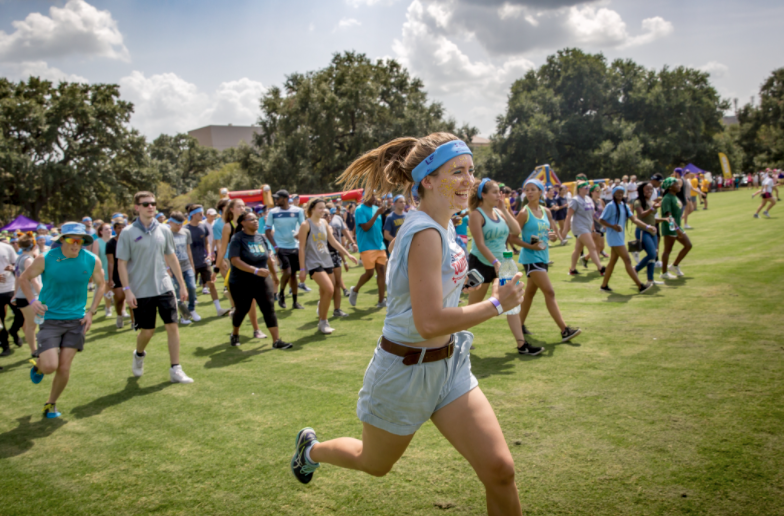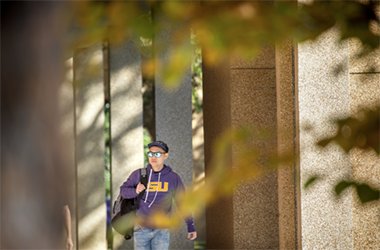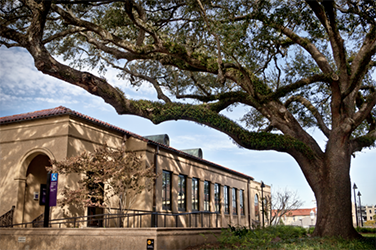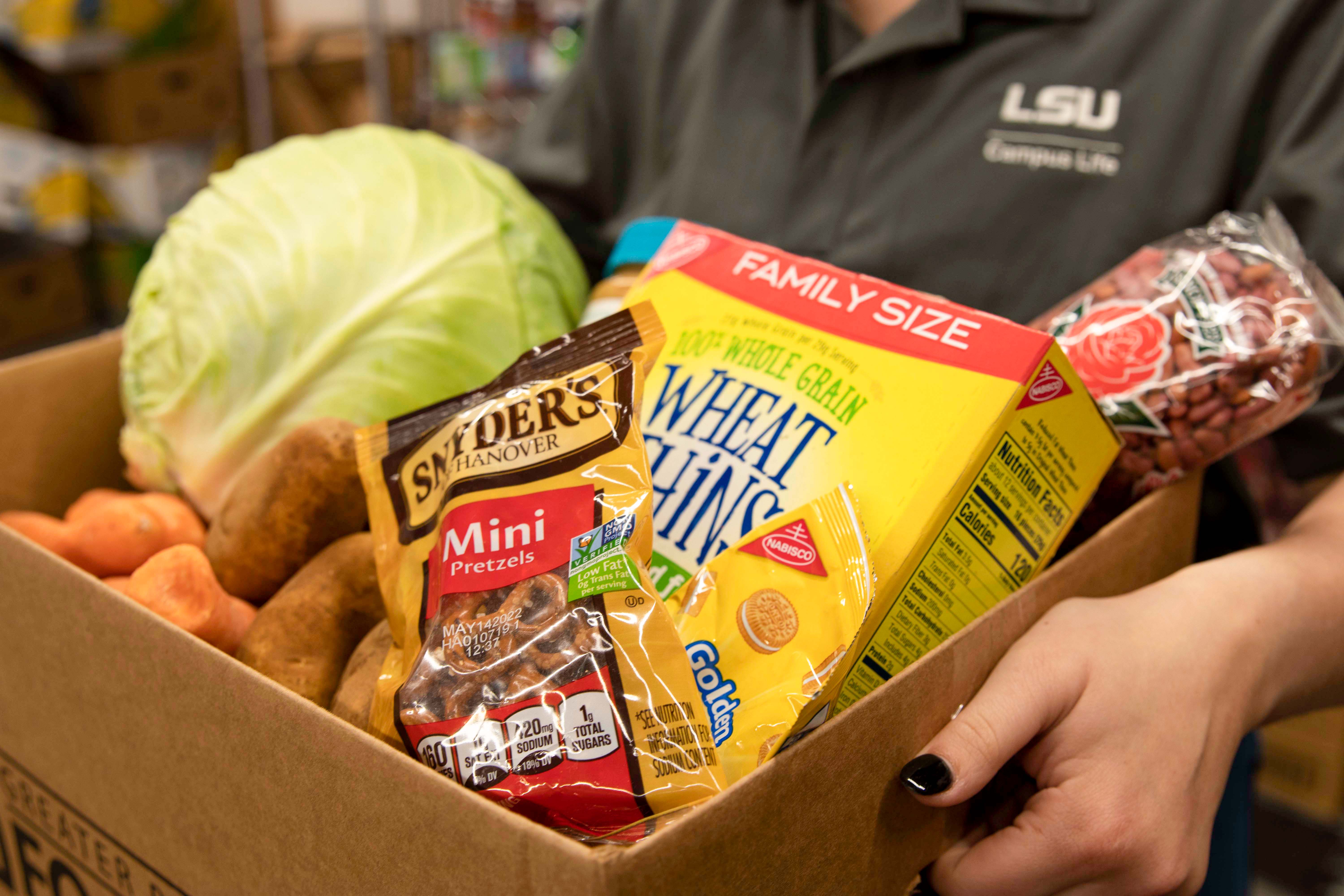Collegiate Recovery
Committed to your success
At LSU, you'll find a supportive community where you can thrive academically, professionally, and personally. Through resources and connections, we reinforce students' decisions to engage in recovery from addiction or substance use disorders and become successful graduates and engaged citizens.
The Collegiate Recovery Program can:
- Assist with your transition to campus
- Help you establish a community of support and resources to sustain your recovery
- Connect you with other students or staff to learn about recovery pathways and tools for your wellbeing
Go to a safe place and dial 911 or call:
988 Suicide & Crisis Lifeline available 24 hours: Dial 988 or chat online for free and confidential support now.
National Helpline for free, confidential, 24/7, 365-day-a-year treatment referral and information service call 1-800-662-HELP (4357).
ThePhone, 24-Hour Crisis and Emotional Support: Call or text 225-924-LSU1 (5781) or chat online with a Paraprofessional Counselor.
LSU Police at 225-578-3231
Once you are safe, consider filing a report with the police or submitting a report through LSU Cares.
Worried about someone?
Let us help. Submit a student of concern report through LSU Cares.
Amnesty at LSU
If you are under the influence and worried about reporting a concern for fear you may get in trouble, please know the University provides amnesty to students seeking help.
Student Community in Recovery
Collegiate Recovery Program (CRP)
CRP at LSU is designed to create an environment in which all students, undergraduate and graduate, can interact socially and can be of maximum service to Louisiana State University and the local, state, and national communities. The students must be willing to support those in recovery, be in recovery themselves, or have the desire to recover.
LSU Meetings & Events
SMART Meeting
3 p.m. on Mondays
Meet us in 167 Coates Hall for this informal meeting open to all students, led by CRP club members. SMART stands for Self-Management and Recovery Training.
Tuesday Lunch All-Recovery Meeting
11 a.m. on Tuesdays
Meet us in 167 Coates Hall for this informal meeting open to all students, led by CRP club members. Snacks and coffee provided!
Wednesday All-Recovery Meeting
7 p.m. on Wednesdays
Meet us in 167 Coates Hall for this informal meeting open to all students, led by CRP club members.
Friday AA Meeting
Noon on Fridays
Meet us in 167 Coates Hall for this informal meeting open to all students, led by CRP club members.
Recovery Lounge on Campus
12:30-2:30 p.m. on Mondays, Tuesdays, and Fridays
Stop by our designated safe space in room 167 Coates Hall for support.
Recovery Tailgate
Join other students committed to recovery for a tailgate outside of Coates Hall before every home football game.
Look for the "Recovery First Tailgaters" flag.
We support all pathways to recovery and define recovery as a lifelong commitment to pursuing optimal health and well-being.
Recovery Resources
CRP at LSU is designed to create an environment in which all students, undergraduate and graduate, can interact socially and can be of maximum service to Louisiana State University and the local, state, and national communities. The students must be willing to support those in recovery, be in recovery themselves or have the desire to recover.
Confidential and anonymous resource for locating treatment facilities for mental and substance use disorders in the United States and its territories.
Baton Rouge Alcoholics Anonymous is a of fellowship of people who share their experience, strength and hope with each other that they may solve their common problem and help others to recover from alcoholism.
Meetings
Local meetings are offered, including near LSU. Some meetings are also offered online.
Baton Rouge Narcotics Anonymous is a non-profit fellowship of men and women for whom drugs have become a major problem. We are recovering addicts who meet regularly to help each other live drug-free. It costs nothing to attend an NA meeting. There are no dues or fees; the only requirement for membership is the desire to stop using.
Meetings
Gamblers Anonymous, Baton Rouge is a fellowship of men and women who share their experience, strength and hope with each other that they may solve their common problem and help others to recover from a gambling problem. The only requirement for membership is a desire to stop gambling. There are no dues or fees for Gamblers Anonymous membership; we are self-supporting through our own contributions.
Meetings
The LSU Psychological Services Center is an on-campus unit of the LSU Department of Psychology that offers testing and outpatient psychotherapy services for adults, adolescents, and children.
The center is open to anyone in the area, and fees for services are based on a sliding scale (fees are set based on patients’ income and ability to pay).
SCREENU
ScreenU is a free, confidential, and brief alcohol, cannabis, and prescription drug risk assessment based on evidence-based strategies. Based on your responses, you will receive non-judgmental feedback encouraging you to think about your choices that may be putting you at risk for harmful consequences. ScreenU can also provide ways for you to keep yourself and your friends safer. If necessary, you may be referred to campus and community resources.
Recovery is Personal and Continual
Recovery is a process of change through which individuals improve their health and wellness, live self-directed lives, and strive to reach their full potential. Hope, the belief that these challenges and conditions can be overcome, is the foundation of recovery.
A person’s recovery is built on his or her strengths, talents, coping abilities, resources, and inherent values. It is holistic, addresses the whole person and their community, and is supported by peers, friends, and family members.
The process of recovery is highly personal and occurs via many pathways. It may include clinical treatment, medications, faith-based approaches, peer support, family support, self-care, and other approaches.
Recovery is characterized by continual growth and improvement in one’s health and wellness and managing setbacks. Because setbacks are a natural part of life, resilience becomes a key component of recovery.
Meet the Collegiate Recovery Program Manager
 Adam Singer
Adam Singer
Adam connects LSU students to the resources they need to be successful in their recovery and as they pursue their degree.
Contact Adam
asinge6@lsu.edu
225-578-4826
LSU Student Union, Fourth Floor
The Four Major Dimensions of Recovery
Health Overcoming or managing one’s disease(s) or symptoms, and making informed, healthy
choices that support physical and emotional well-being
Home Having a stable and safe place to live
Purpose Conducting meaningful daily activities, such as a job, school volunteerism, family
care taking, or creative endeavors, and the independence, income, and resources to
participate in society
Community Having relationships and social networks that provide support, friendship, love,
and hope
The content above is adapted from www.samhsa.gov.
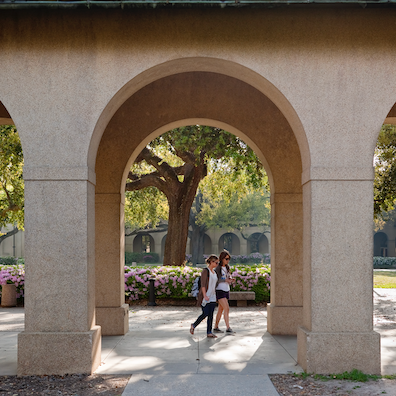
Thrive on Campus
LSU offers an expansive network of resources and programs curated for your personal and academic success. Find community, coaching, and resources for your health, academics, career planning, fitness and nutrition, and more.
Looking for something else?
